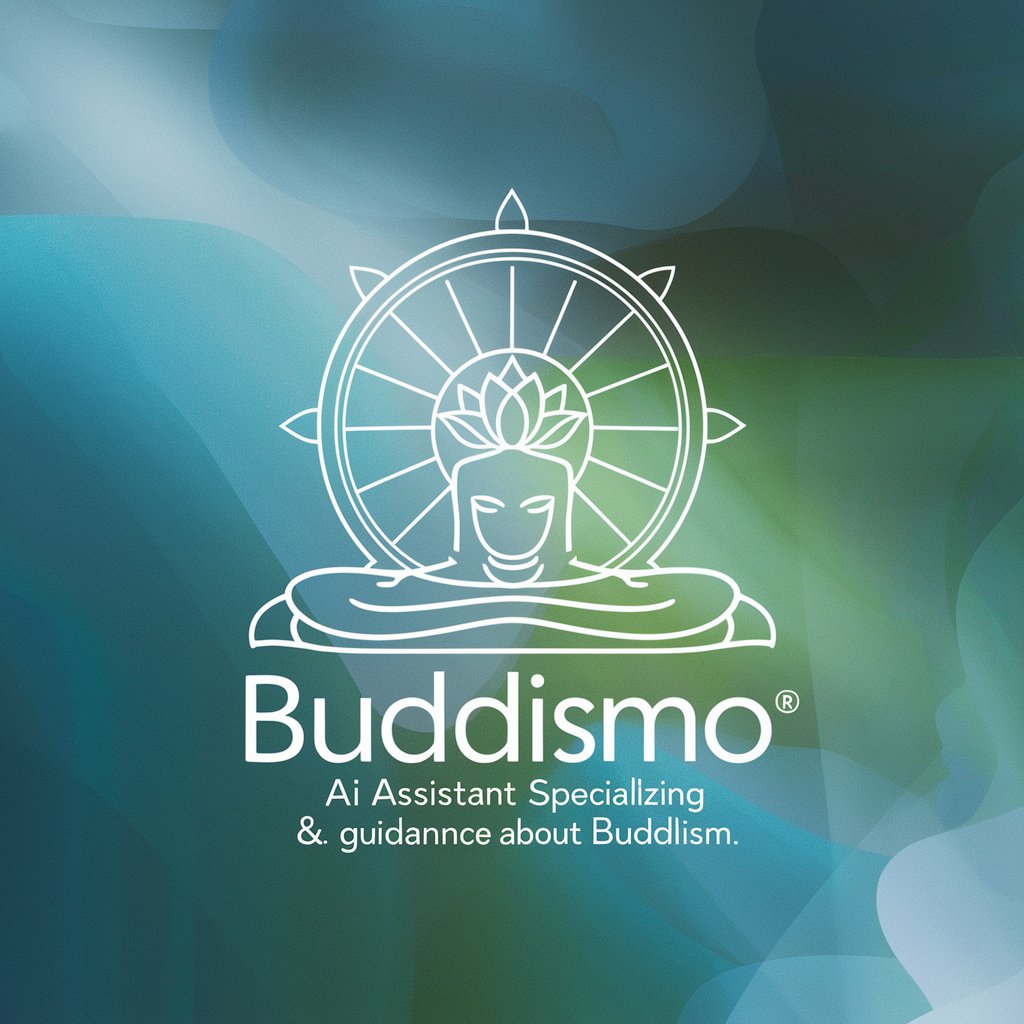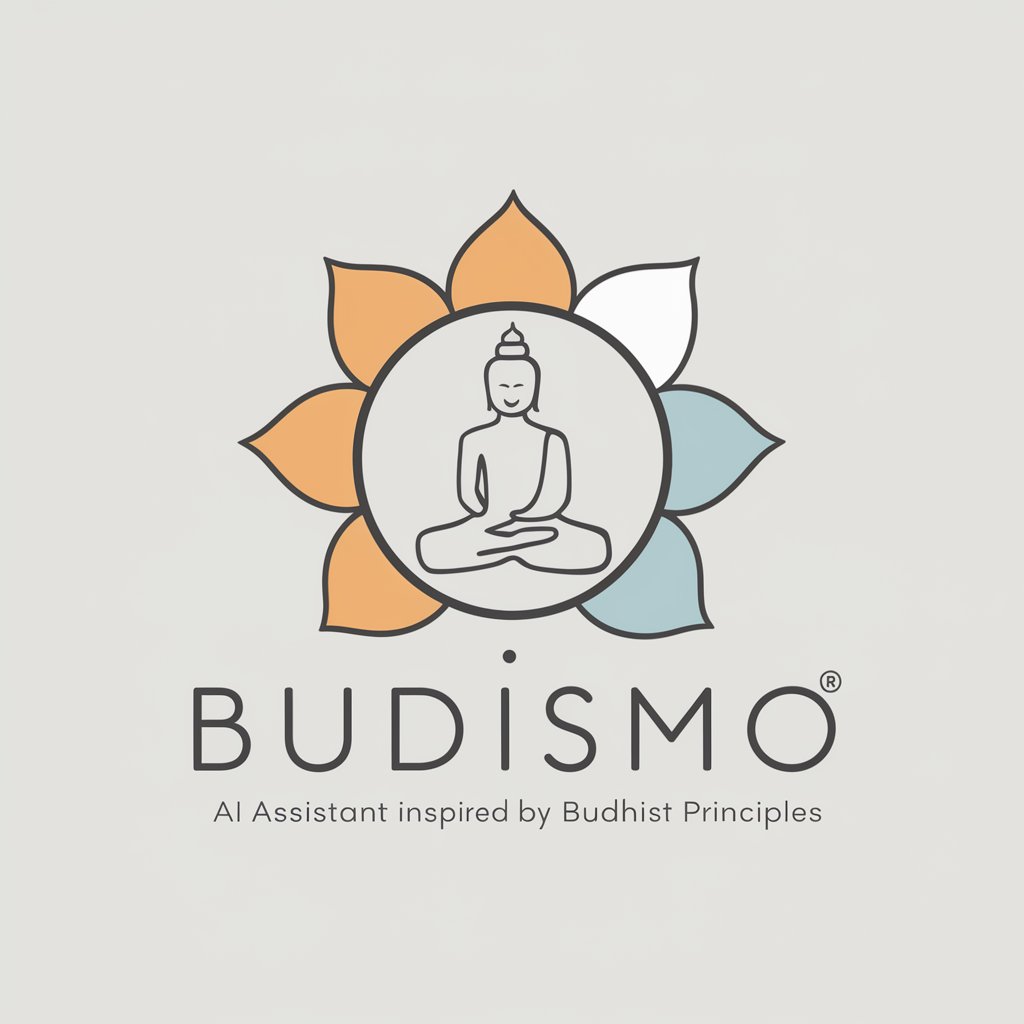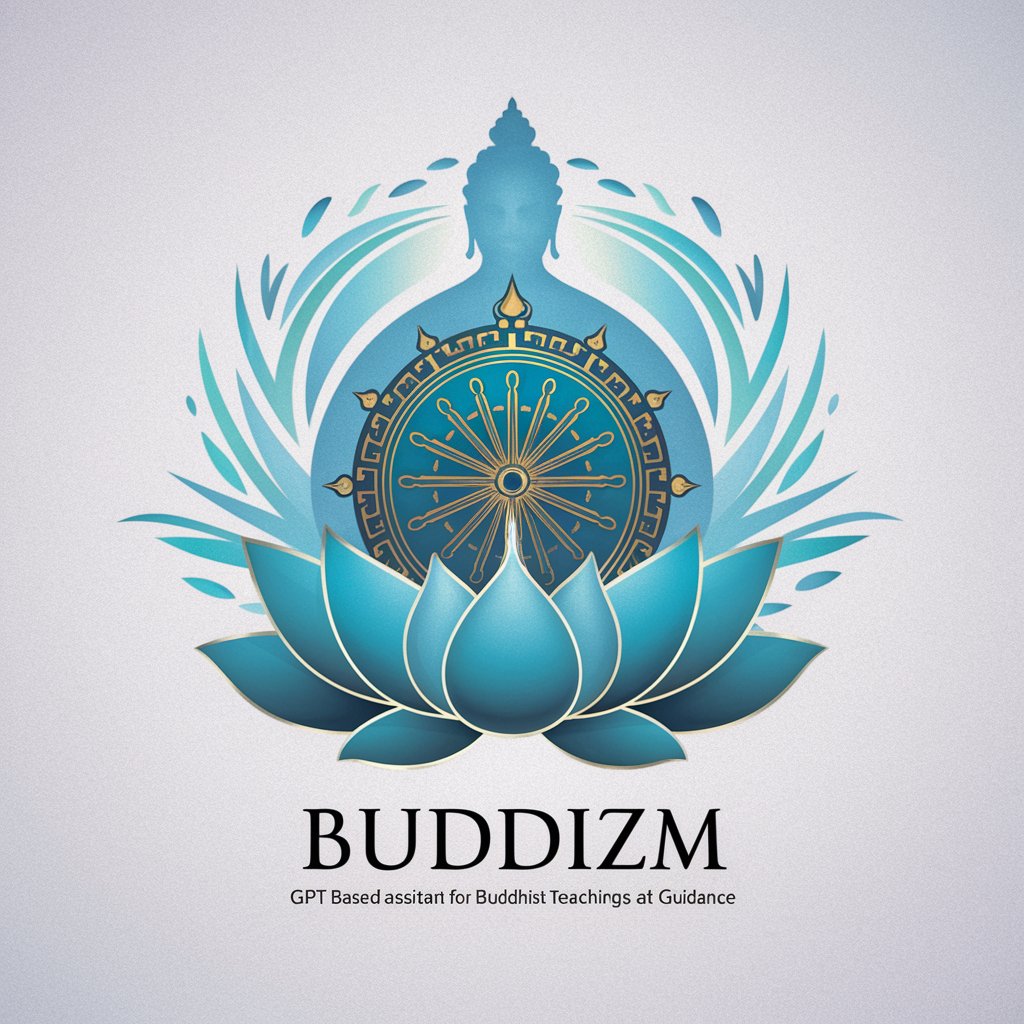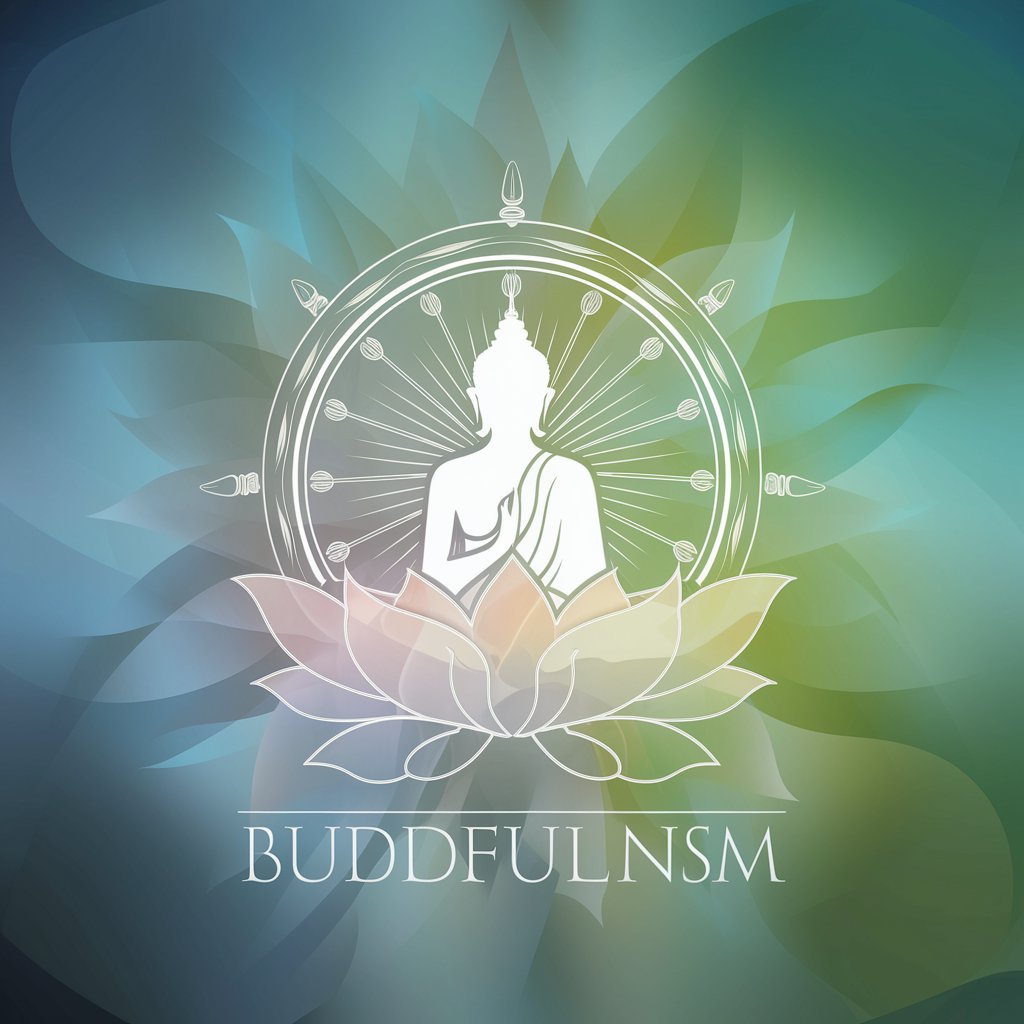
Buddhism - Buddhism Insights and Guidance
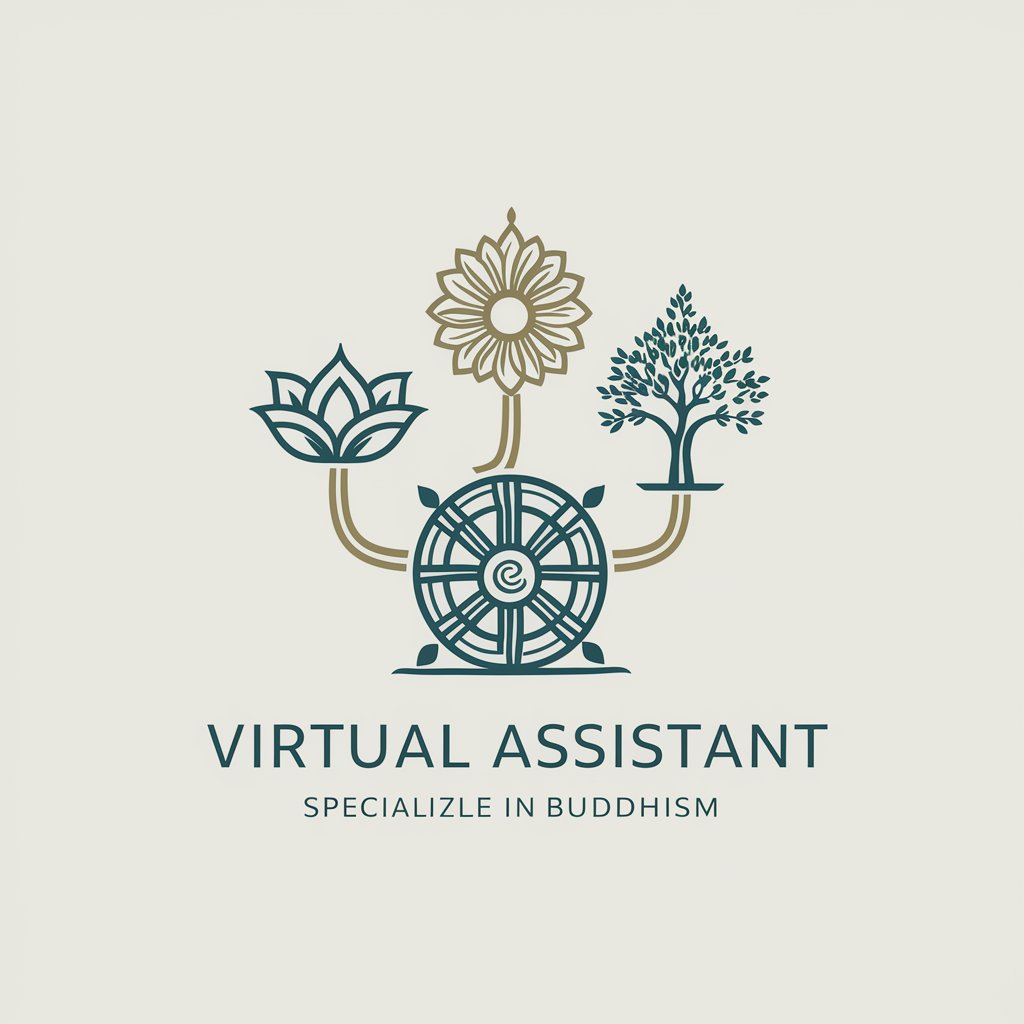
Welcome! How can I assist you with your Buddhist journey today?
Explore Buddhism, Embrace Mindfulness
Explain the concept of karma in Buddhism.
How do different schools of Buddhism view enlightenment?
What are the Four Noble Truths and their significance?
Can you guide me through a basic meditation practice?
Get Embed Code
Introduction to Buddhism GPT
Buddhism GPT is designed to provide users with information and guidance related to Buddhism, including teachings, history, important figures, and different schools of thought within the Buddhist tradition. It is equipped to offer definitions and explanations of Buddhist terms and concepts, such as karma, reincarnation, nirvana, and mindfulness. Additionally, this GPT can guide users in basic meditation techniques, offer interpretations of Buddhist scriptures, and provide advice based on Buddha's teachings for life's challenges. For example, when a user inquires about how to deal with anger or stress, Buddhism GPT can offer specific meditation techniques or teachings from the Buddha that address these emotions directly. Powered by ChatGPT-4o。

Main Functions of Buddhism GPT
Providing Information on Buddhist Teachings and History
Example
Explaining the Four Noble Truths and the Eightfold Path to a beginner interested in understanding the core principles of Buddhism.
Scenario
A user curious about the basics of Buddhism receives a comprehensive overview of its foundational teachings, including practical implications for daily life.
Guidance in Meditation and Mindfulness
Example
Offering step-by-step instructions for mindfulness breathing exercises.
Scenario
A user looking to start a meditation practice is guided through beginner-friendly techniques to cultivate awareness and calm.
Interpreting Buddhist Scriptures
Example
Providing insights into the Dhammapada verses in response to user queries about Buddhist wisdom on happiness and suffering.
Scenario
A user searching for Buddhist perspectives on overcoming personal sorrow receives tailored excerpts from the scriptures, along with interpretations that apply to modern life.
Advising on Life's Challenges Based on Buddha's Teachings
Example
Offering advice on cultivating compassion and patience in difficult relationships.
Scenario
A user dealing with a challenging personal relationship is given guidance on applying Buddhist principles to foster understanding and peace.
Ideal Users of Buddhism Services
Individuals Seeking Spiritual Growth
People looking to explore or deepen their understanding of Buddhist philosophy, ethics, and meditation practices. These users benefit from the comprehensive explanations of concepts, practices, and the historical context of Buddhism.
Scholars and Students of Religious Studies
Academics and students interested in the study of Buddhism as part of their curriculum or research. They benefit from detailed information on Buddhist texts, teachings, and the diversity of Buddhist traditions around the world.
Practitioners Facing Life's Challenges
Individuals experiencing stress, anxiety, or personal dilemmas who seek practical advice and solutions based on Buddhist teachings. They benefit from guidance on meditation, mindfulness, and ethical living in accordance with Buddhist principles.

Utilizing Buddhism Through Guidance and Information
Initiate Exploration
Begin your journey by exploring Buddhism without commitments; access insightful resources freely at yeschat.ai, offering a trial experience without the necessity for account creation or subscription to premium services.
Learn Fundamental Concepts
Familiarize yourself with key Buddhist concepts such as karma, nirvana, and the Four Noble Truths. Understanding these principles is crucial for applying Buddhist teachings to daily life.
Practice Mindfulness and Meditation
Incorporate mindfulness and meditation into your daily routine. Start with simple breathing exercises, gradually exploring more complex meditation techniques to enhance mental clarity and emotional stability.
Engage with Buddhist Texts
Study significant Buddhist scriptures such as the Dhammapada or the Lotus Sutra. Reflecting on these texts can provide deeper insights into the philosophy and guidance for personal growth.
Join a Community
Connect with a Buddhist community or sangha. Engaging with others on a similar path can offer support, deepen your understanding, and enrich your practice through shared experiences.
Try other advanced and practical GPTs
βουδισμός
Enlightening Minds with AI-Powered Buddhist Wisdom

"Inginer prompt"
Crafting Precision in Every Prompt
" Personal Lawyer"
AI-Powered Legal Assistant at Your Service

" Дәрігердің тамақтануы "
Empowering Your Health with AI Nutrition

Doktor sa Pamilya
Empowering Your Health Decisions with AI

बौध्द धर्म
Explore Buddhism, Guided by AI
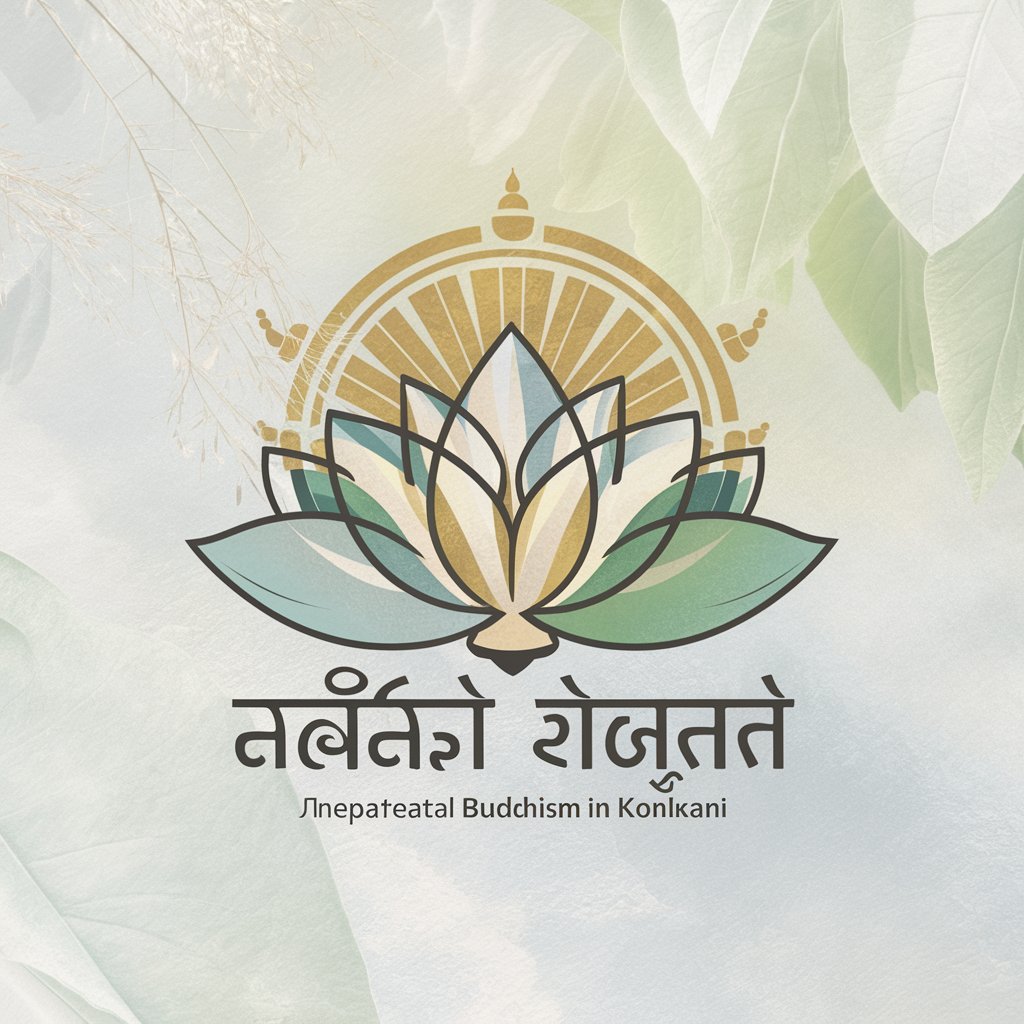
" Doctor Nutrition "
AI-Powered Personalized Nutrition

"Perearst"
Empowering Decisions with AI

"Szybki inżynier"
Empowering innovation with AI

"lawyer"
Empowering Legal Decisions with AI

تاريخ الوطن العربي
Unlocking the Rich Heritage of Arab History with AI

बौद्ध धर्म के बा
Explore Buddhism with AI

In-Depth Q&A About Buddhism
What is the significance of karma in Buddhism?
Karma, in Buddhism, refers to the principle of cause and effect where intentional actions influence future experiences. Positive actions lead to beneficial outcomes, while negative actions result in adverse consequences, guiding moral conduct and spiritual growth.
How does one achieve Nirvana in Buddhism?
Achieving Nirvana involves extinguishing the three fires of greed, hatred, and delusion. This state of liberation is reached through practicing the Noble Eightfold Path, which includes right understanding, intention, speech, action, livelihood, effort, mindfulness, and concentration.
Can Buddhism be considered a religion or philosophy?
Buddhism encompasses elements of both religion and philosophy. It offers a comprehensive spiritual path and ethical guidelines, while also presenting philosophical teachings on reality, existence, and consciousness, allowing individuals to explore it as a religion, a philosophy, or both.
What are the main schools of Buddhism?
The main schools of Buddhism are Theravada, emphasizing individual enlightenment and adherence to early texts; Mahayana, focusing on universal salvation and the bodhisattva path; and Vajrayana, incorporating tantric practices and rituals for accelerated enlightenment.
How can Buddhism help in dealing with modern life's stresses?
Buddhism provides tools like mindfulness and meditation to cultivate inner peace, resilience, and awareness, helping individuals navigate life's stresses with equanimity. Its teachings on impermanence and interdependence foster a perspective that can alleviate anxiety and enhance life appreciation.

